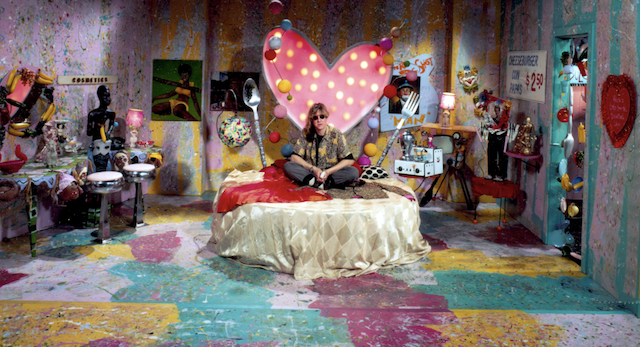
©Courtesy of Magnolia Pictures
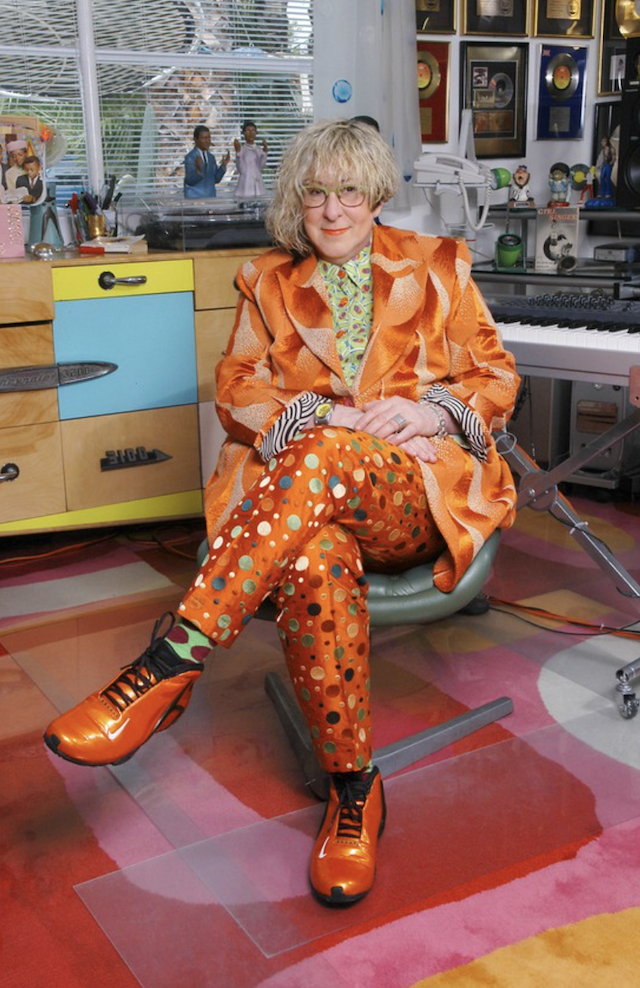
©Courtesy of Magnolia Pictures
Exclusive Interview with Director Alexis Spraic and Allee Willis’ Partner Prudence Fenton
Q : Okay, when I was in Japan, I used to listen to the American Top 40. And I used to listen to some of the songs like “Fallen” which was used in “Pretty Women” and “You are the Best” which was used in “Karate Kid”, both of them are written by Allee Willis, so it was great to finally see this film and talk about her. I’m pretty sure many of the people find Allee’s character fascinating, but what was the starting point for you, Alexis, to make this documentary?
Alexis Spraic: I was friends with Paul Rubens, better known as Pee-wee Herman, and he and Allee were best friends inter lifetime, he was very close friends with Allee’s life partner Prudence Fenton, who’s also an artist among other things who did the Pee-wee’s Playhouse opening titles, which is so iconic. His kind of false pretenses introduced me to Prudence. I’m a documentary filmmaker, and she was looking for someone to fulfill one of Allee’s requests that this amazing collection and archive Allee left behind be turned into a documentary after she passed away. I had the experience as you, googling her, first I recognized that she’s from LA. So she was. a known persona, but I had no idea how much she’d been a part of my life until I really dove into the archives and got to understand the breadth of her artistry.
Q : Prudence, could you talk about Allee’s house? It’s almost like Graceland or something out of the theme park. It’s fascinating to see her living in a dream house in a certain sense, what was like living there actually?
Prudence Fenton: I actually didn’t live there because there was no room for me.
Q : Oh, really?
Prudence Fenton: Everything about the house, express Allee. The most wonderful thing about that house is so much light in it and the lines and curves. It’s a very happy house. That meant a lot to her, everything in her environment made her happy. Every touchstone of every little kit, or statutes, or photos or vase or something like that. It’s just the shape of it was avant and she loved that. And so she surrendered herself by that.
When she bought the house was brown and the house had all these evergreen trees and evergreen hedges around it. And it had a brick patio in the back. It’s just wrong for that house, she had a vision about it and put an alley layer over that house. And, I’d love to keep it as a museum, as an L.A touchstone museum forever. But the houses cost a lot of money, especially that one. I’ll keep it as long as we can afford it and make it a museum. If you are in town and you want a tour, I am happy to give you a tour.
Q: I have to go there!!
Prudence Fenton: It’s absolutely incredible. And people walk in and they transform almost immediately. You see them stand up straighter, smile, recognize something from their past and relate to it. She made it a magical place, it’s very much her personality. You’re walking inside her brain when you see that house.
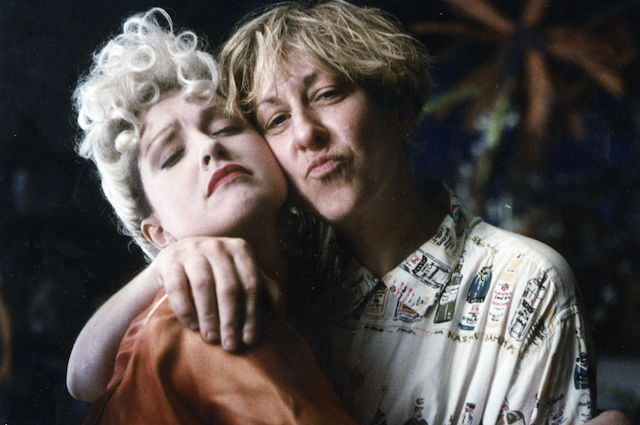
©Courtesy of Magnolia Pictures
Q : I was fascinated by how much archival footage exists in this film, dating back from1978. Alexis, How much archival footage was there. And how did you narrow it down, what was essential to bring into this film? And Prudence, how much did you help Alexis?
Prudence Fenton: Oh, I didn’t help her at all. They watched all 20, 000 hours of footage.
Alexis Spraic: There’s a lot of material, we still find some footage for better or worse, but it was really a great challenge and problems to have, because there was so much footage, we knew that we wanted the film to be a feature length film which is a 90 minute canvas. So that’s not a lot of space when someone’s been documenting their life as rigorously as Allee. I mean she had six storage units. She had at least 10, 000 hours of footage. And there was just so much to work with, but a big thing is just coming up with a point of view for the story and making sure that we knew why we were telling it, so that as we looked at things, we could make choices.
And of course we still had to make really hard choices as we got to the end and let go of things that for another documentary would have made its own documentary. But Allee really…I think in her lifetime, she really wanted to, she stood as this kind of beacon of individuality and self acceptance and she wanted to touch people and activate their creativity and encourage people to live and be individuals.
And I think a big part of that was sharing some of the vulnerability and fragility that she hadn’t shared in her lifetime, so she left the archives to be discovered. We were looking for those sort of honest moments and that way of telling all of the amazing things she accomplished, but also showing the unvarnished side of it and the way that she struggled to accept herself and how she persevered even when she was struggling. So that, that really became a guiding light for us.
Q : Alexis and Prudence, could you talk about Allee’s relationship to her parents? My mother died when she was very young, Allee was 15 years old. But father seems to be very uptight about the things in those days. I’m curious to know that after her success, did she and her father patch things up or still remain the same, isolated in a certain sense?
Prudence Fenton: Her father was so strict. He didn’t want to see her for who she was. He was always like her brother says in the film, he always tells Allee to wear a dress, tell Allee to marry a doctor, tell Allee to do anything, but what she was doing. I think if you have that kind of pressure on you, but you still want to be seen by your father, everybody has that. They still want their father to understand and love them no matter what, he threw up so many roadblocks. I think it was hard. I’ve never met him and I don’t think he knew I existed or anything about that. It was a ground rule kind of, this is the way it is. It was a reality you weren’t going to change.
Alexis Spraic: And I think we showed in her one woman show that she has a joke that her father didn’t approve of her connection to black music and black culture. And work so much…her biggest hits are part of that. So that’s in itself really sad, but she made this joke where she said, she told him that she finally got the gig to write the color purple, musical, and that he was gone within an hour. And always gets a good laugh and it is a funny joke, but it’s also really heartbreaking because what she’ saying is that down to his last breath, he never embraced or took pride in what she accomplished, even when it was at that incredible level of being chosen to write such an iconic Broadway musical. So I think that was something that really did color her whole life, unfortunately.
Q : Could you talk about also, A&M records for them to take a chance on Allee in the early stage of her career, it’s really rare for female white artists to write lyrics for black musicians back then.
Alexis Spraic: I was struck because even though I knew the songs, I didn’t know the backstory of many songs that she’d written almost constantly, even her earliest pieces not hits, but recorded by major artists. It was Bonnie Raitt, Patti LaBelle, Earth, Wind & Fire. It was always women and people of color that she didn’t care who she was representing, she just saw their talent.
And I think when you think about the fact that they also are themselves marginalized groups or coming from marginalized groups, it makes a lot of sense that’s who was able to see her and give her big breaks. Because songwriting at that point was very male dominated and music was segregated.
It’s not even crossover, she just could write almost any type of music, which hurt her as well, because it made it harder, I think for her to not be used as somebody to come in and fix up other people’s songs and what not. The people with vision saw the talent and they got the benefits of it and I think her discography tells you who those people were.
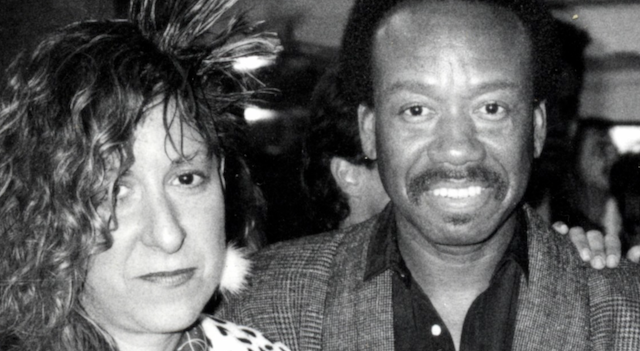
©Courtesy of Magnolia Pictures
Q : I used to listen to the song, The Fallen by Lauren Wood, which was used for the soundtrack for Pretty Woman. Could you talk about her relationship with Lauren? Because I find it fascinating because there seems to be a lot of artistic relationship that’s like a blossom, to a certain extent, but at the same time, it’s a very hidden relationship.
Alexis Spraic: It’s pretty much how it’s depicted in the film. Lauren and her had a nice connection in terms of songwriting. They wrote a lot of great songs together, but Allee wasn’t ready. Lauren was out and openly gay. And Allee, I don’t think not only was she not openly gay, but I don’t know that she would have probably even seen herself that way. She was still dating men at that time, and even though we like to think that we’ve come so far, there was so much homophobia then and now.
And Lauren did talk about it and didn’t make it into the film, but she did talk about the fact that her choice to be openly gay actually did hurt her career and her record didn’t promote her the same way. You can totally see that in the 1980s. Lauren was very conventionally attractive, had a very sultry voice, was a really good songwriter, had some significant hits but maybe didn’t get the attention she might have gotten if she’d presented as straight.
So it was a challenge for Allee at her early point in her career. She didn’t want to give anyone any reason not to work with her. And she came from a background where people were really hostile towards people who were going to anything outside of the status quo. Later on, I think there were other things going on for her to weigh and measure in terms of how she wanted to present herself and be, but those early years were vulnerable. She was really young and the music industry was very homophobic.
Prudence Fenton: I think she wanted the work to speak for itself. Look at the work, look at what I’m producing. You don’t need to look at me.
Q : Did she talk about a certain struggle with you, Prudence when you’re actually together, because, this is really an essential topic to talk about, because in order to sustain a good relationship.
Prudence Fenton: No, it wasn’t something you talk about. I mean sort of it was understood, there would be no public display of affection. I mean I was comfortable with that when I was a man or woman. it seemed like that’s not for public consumption. it’s not something we openly discussed. It was just kind of understood. If some people knew about us that was okay, but it wasn’t gonna be front page news or even page six.
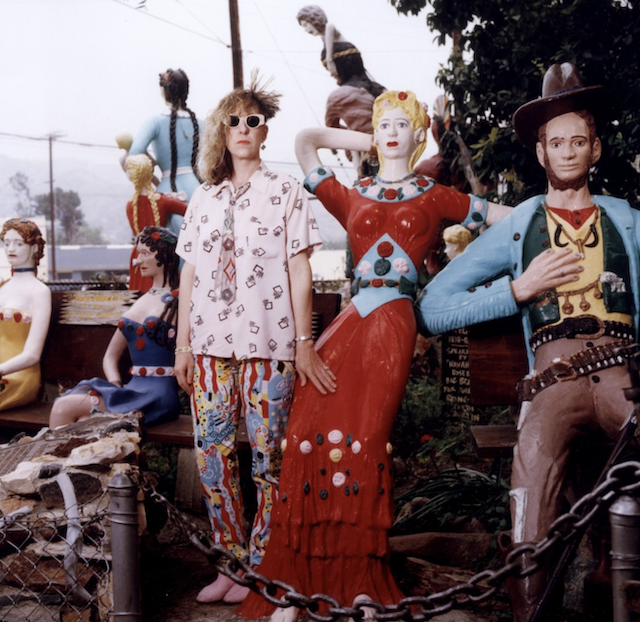
©Courtesy of Magnolia Pictures
If you like the interview, share your thoughts below!
Check out more of Nobuhiro’s articles.
Here’s the trailer of the film.

